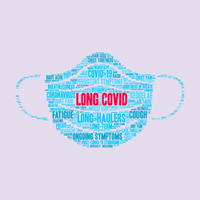
A new study has found that patients hospitalised with COVID-19 had significantly reduced levels of glutathione (GSH) and elevated oxidative stress and oxidant damage. The study findings have implications for including glutathione precursors, glycine and N-acetylcysteine (NAC), into standard treatment protocols (1).
During oxidative stress, higher reactive oxygen species (ROS) levels (either due to excess production or decreased removal rate) can result in cellular damage and affect many physiological processes. Antioxidants, including GSH, the most abundant intracellular antioxidant, play a crucial role in protecting cells from oxidative stress. Depletion in GSH impairs immune function, particularly T lymphocytes and macrophages, increasing susceptibility to infection (2). In addition, low GSH levels are associated with other conditions, including cardiovascular disease (3), HIV (4), diabetes (5), obesity (6), and Alzheimer’s disease (7). Endogenous GSH levels decrease with ageing, making the elderly more susceptible to oxidative damage and ageing-related diseases (8).
Age and comorbidity are both associated with reduced endogenous GSH levels and are considered significant risk factors for severe illness and death from COVID-19, which is caused by the severe acute respiratory syndrome coronavirus 2 (SARS-CoV-2) (9,10). Endogenous GSH deficiency has been proposed as a crucial factor enhancing SARS-CoV-2-induced oxidative damage of the lung which, together with the uncontrolled excessive production of inflammatory mediators and sustained systemic inflammatory process (known as the cytokine storm), leads to serious manifestations such as acute respiratory distress syndrome (ARDS), multiorgan failure, and death in COVID-19 patients (2,11,12). However, human studies investigating endogenous GSH levels during SARS-CoV-2 infection are lacking.
In the current study, intracellular GSH, plasma thiobarbituric acid (TBARS) (a marker of oxidative stress) and F2-isoprostane (a marker of oxidant damage) levels were analysed in 60 adult patients (age 21-85 years) hospitalised with COVID-19. The results were compared to 24 healthy age-matched individuals whose samples were taken before the pandemic started in 2019.
Compared to uninfected controls, COVID-19 patients of all age groups had severe GSH deficiency, with GSH levels (total and reduced) 60% lower than controls. The COVID-19 patients also had increased oxidative stress as indicated by plasma TBARS concentrations, which were 203% higher than uninfected controls, and elevated oxidant damage, as indicated by plasma F2-I concentrations, which were 115% higher.
The data were also analysed for three discrete age groups: young adults (21 – 40 years), middle-aged adults (41 – 60 years), and older adults (>60 years). Previous research has shown that the levels of oxidative stress, oxidant damage and GSH remain stable until people enter their 60s. However, COVID-19 infection changed this pattern, and the younger COVID-19 patients also had elevated markers of oxidative stress and reduced GSH levels. Furthermore, these markers worsened with advancing age.
Supplementing with the GSH precursors glycine and cysteine (as NAC) may be of benefit for COVID-19 patients, with previous studies in the elderly (13,14), HIV-infected patients (15) and diabetic patients (16) showing that the combination reduces oxidative stress and oxidant damage, increases GSH, and improves health indicators such as inflammation.
NAC has been used as an effective mucolytic agent for several decades. However, NAC also has immune-modulating, antiviral and anti-inflammatory effects, which may be beneficial for treating SARS-CoV-2 infection (17,18,19). Clinical trials demonstrate that the addition of NAC to the standard treatment protocol decreases the severity of many acute respiratory conditions like influenza, community-acquired pneumonia (CAP), ARDS, and exacerbations of chronic obstructive pulmonary disease, mainly by attenuating the immune activation (19). A recent retrospective cohort study found that oral NAC administration (1,200 mg/d) in patients with COVID-19 pneumonia reduces the risk for mechanical ventilation and mortality (20).
A limitation of this study is that GSH levels and oxidative stress markers were only analysed for a single time point (within 24 hours of hospital admission), and future studies are required to assess changes in GSH levels and oxidative stress markers over the course of COVID-19 illness and recovery. Nevertheless, the study suggests that targeting oxidative stress and GSH deficiency could be vital for improving health and survival in COVID-19 patients and needs to be evaluated in clinical trials.






